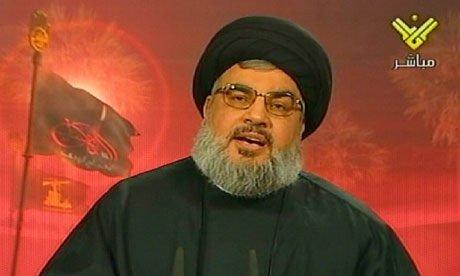Many Lebanese, including the current PM, may have come to regret, at least in private, that the tribunal exists
By Ian Black
This commentary was published in The Guardian on 16/12/2010

Rafiq Hariri's assassination in February 2005 was sensational. It triggered not only the "Cedar Revolution", leading to the humiliating withdrawal of Syrian troops from Lebanon after 29 years, but also a rare convergence of US and French interests to create the tribunal whose next move is now so anxiously awaited.
Hariri's murder has been compared to the assassination of President John F Kennedy in 1963 — in the sense that there is a lingering mystery about who did what.
Otherwise the picture is alarmingly clear: the shift of suspicion from Syria to Hezbollah has ensured that indictments will cause serious trouble. The threats of Hassan Nasrallah to "cut off the hand" of anyone who touches his organisation are not being taken lightly in Beirut.
Many Lebanese, including Hariri's son, Sa'ad, the current prime minister, may have come to regret, at least in private, that the tribunal exists: after all, plenty of other political murders remain uninvestigated (the tribunal is also mandated to look at some of them). The sudden thirst for justice and an end to impunity was born during a heady political moment which has long passed as a deeply divided country again looks into the abyss.
The period of maximum US influence in Lebanon is over. Hariri Jr has taken the road to Damascus and made his peace with Syria's president, Bashar al-Assad, who backs Hezbollah – a formidable force, thanks to support from Iran.
The problem for the Hariri tribunal's detractors is that it has taken on a life of its own: the only way to contain it now would be for the Lebanese government itself to change course — perhaps, as Hezbollah would like, by withdrawing its share of the tribunal funding or by asking for a delay in the already glacially slow proceedings. Saudi Arabia and Syria, patrons of Lebanon's rival factions, are working hard behind the scenes to find a way out.
The tribunal, a legal hybrid with Lebanese as well as international judges, does not inspire confidence: a recent documentary film suggested wholesale leaks from the investigation. Spokesmen have resigned with depressing regularity. The tribunal insists it is independent but critics dismiss it as an instrument of western and Israeli power, created to pressure Syria and Iran: Nasrallah clearly hopes that politics will trump the law. He predicted in a speech to supporters in Beirut today that it would "disappear with the wind".
No comments:
Post a Comment